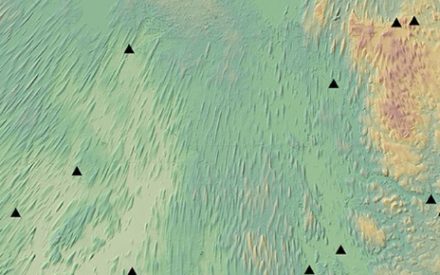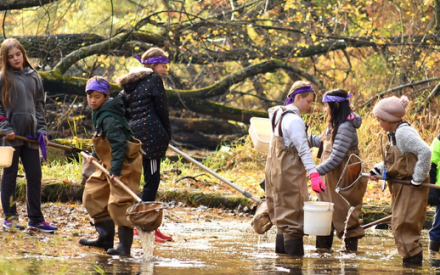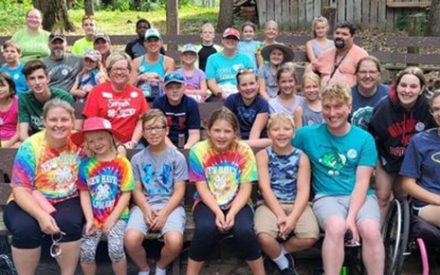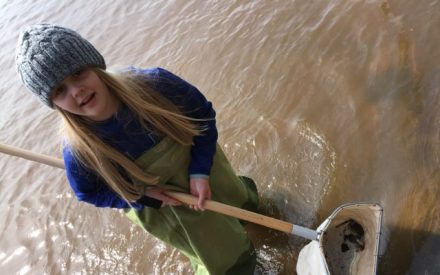Natural resource managers, scientists, educators, and college students from UW Superior and other campuses work on large-scale cleanup and restoration efforts in the St. Louis River estuary. Their goal is to address long-standing legacy pollution and water quality impairments in the Lake Superior Watershed. To be successful, this group has an acute need to coordinate and share information. In a bi-state community, the Twin Ports of Superior, Wis., and Duluth, Minn., include over 115,000 people dependent on Lake Superior and the St. Louis River for clean drinking water; recreation such as fishing, swimming, kayaking, and hunting; and the economic engine of the nation’s furthest inland port. The St. Louis River is listed as an Area of Concern—an international designation in the Great Lakes where significant social and ecological impairment occurred as a result of past human activities.
In response, the Lake Superior National Estuarine Research Reserve serves as a partnership between Extension and the National Oceanic and Atmospheric Administration. Together, we generate research, stewardship, education, and outreach that connect the community to the St. Louis River Estuary and the 16,600 acres included within Reserve boundaries. One of our key initiatives is the annual St. Louis River Summit, hosted by Extension every year since 2010. The Summit strengthens communication, builds community, and improves the efficiency of public agencies and institutions as they work together to mitigate the Area of Concern designation.
Attended by over 300 members of the community, participants share current research, the results of implementing restoration projects, and ideas for future work. By generating increased coordination and the cross-pollination of ideas, the Summit improves the health of the community and this dynamic estuary ecosystem at the headwaters of the Great Lakes. In 2021, the Summit included over 50 presentations, keynotes and featured speakers, in-person and virtual field trips, a poster session, and a community event called The River Talks where 80 participants listened to 12 poets from around the world share original works about rivers (and produced a poetry book).
By offering a venue to share project information and research results, innovative funding sources have been established, methods improved, and duplicate efforts reduced. In a small city like Superior, residents are proud of Lake Superior and want to see it unpolluted and accessible, and the work generated through the Summit underpins community identity. Even in a virtual format responsive to the COVID-19 pandemic, over 90% of participants said they benefited from attending.
Over the past 10 years, the event has built and strengthened networks between scientists and resource managers. Said one participant of the Summit,”I felt amazed at how well connected the AOC (Area of Concern) community is to each other. There was a lot of knowledge and connections displayed in those three days.”
Extension brings together those who depend on the Lake Superior-St. Louis River estuary for education and action.
The Lake Superior National Estuarine Research Reserve is part of Extension’s Natural Resources Institute. Learn more by visiting lakesuperiorreserve.org.
Download Article

 An Improved Geologic Map of Wisconsin
An Improved Geologic Map of Wisconsin Environmental Science Storytelling
Environmental Science Storytelling Field-Based Environmental Education
Field-Based Environmental Education Rivers2Lake Helps Teachers Go Virtual
Rivers2Lake Helps Teachers Go Virtual


